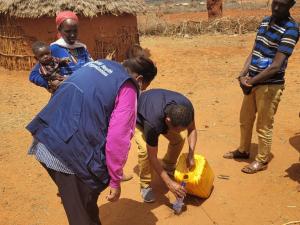ECHO supports WaSH services in response to the Cholera outbreak in Ethiopia
According to Ethiopia Humanitarian Response Plan (HRP) 2022, the country has been experiencing one of the most severe La Niña- induced droughts in the last decade following the fifth consecutive failed rainy season since late 2020. The areas most affected are Afar, Oromia, SNNP, Somali, and Southwest regions. This prolonged drought, that commenced in 2020, has severely compromised the already fragile livelihoods. To make matters worse, poor water, sanitation and hygiene (WaSH)-related services have also negatively contributed to the challenges, including a lack of safe and adequate water supply, widespread open defecation and poor personal hygiene practices. In some drought-affected regions, people have also been displaced in search of water, pasture, and assistance.
The World Health Organization (WHO) in Ethiopia, in partnership with the European Commission Humanitarian Aid & Civil Protection (ECHO), has been playing a critical role in the Ethiopian government’s response to drought and WaSH intervention particularly responding to cholera outbreak through training, water quality monitoring, providing water treatment chemicals, and guiding the overall water, sanitation and hygiene (WaSH) interventions in affected and high-risk areas.
The following photos show WHO-Ethiopia responding in various regions to support the WaSH response.
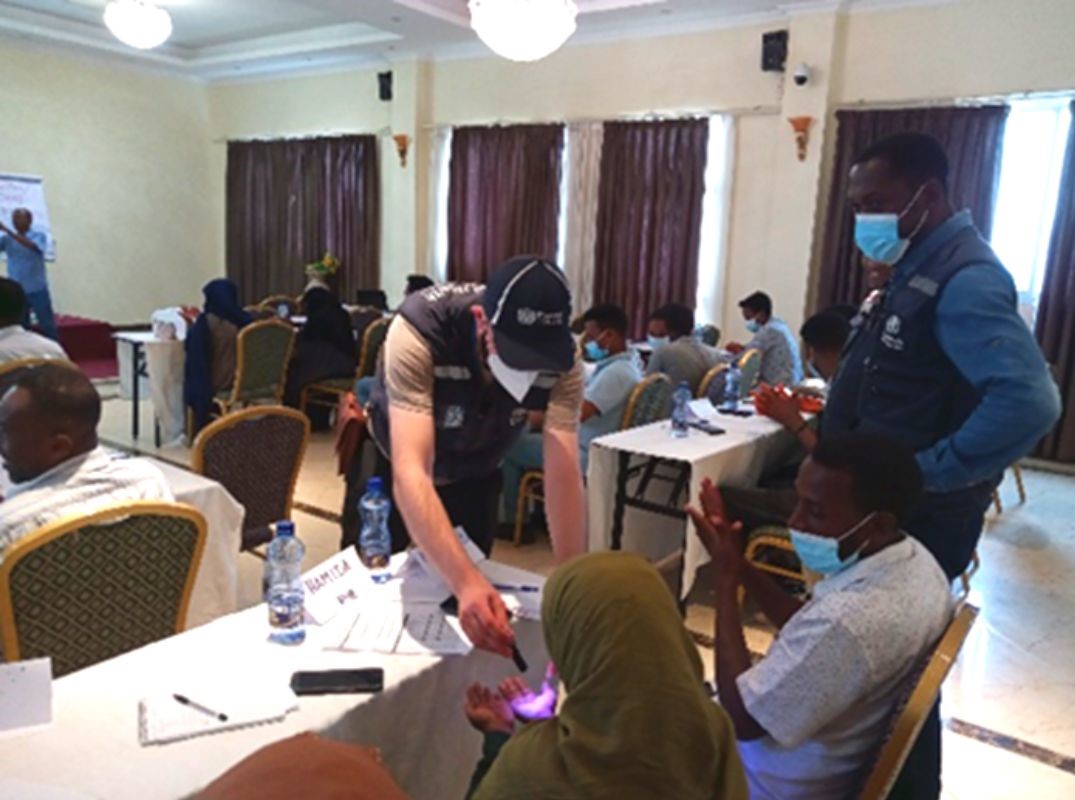
In August, through partner staff training, WHO delivered hands-on training on drinking water quality monitoring and surveillance for Environmental Health Officers in the drought affected regions. This activity is part of the ongoing efforts to strengthen water quality surveillance capacity in drought-affected areas, including those with active cholera outbreaks. WHO has supported technically and financially the training of 181 health workers on practical skills of water quality monitoring and IPC/WASH.
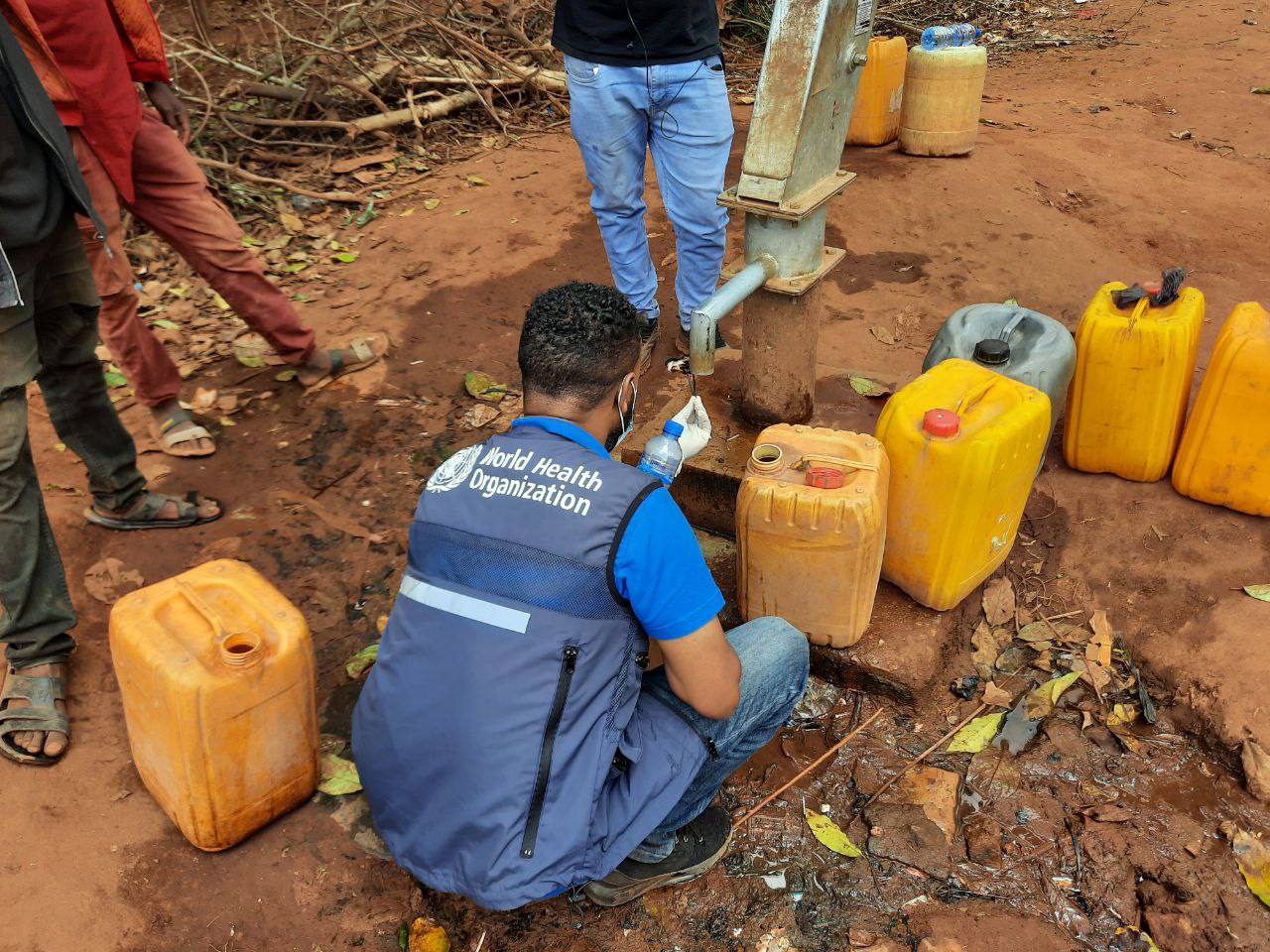
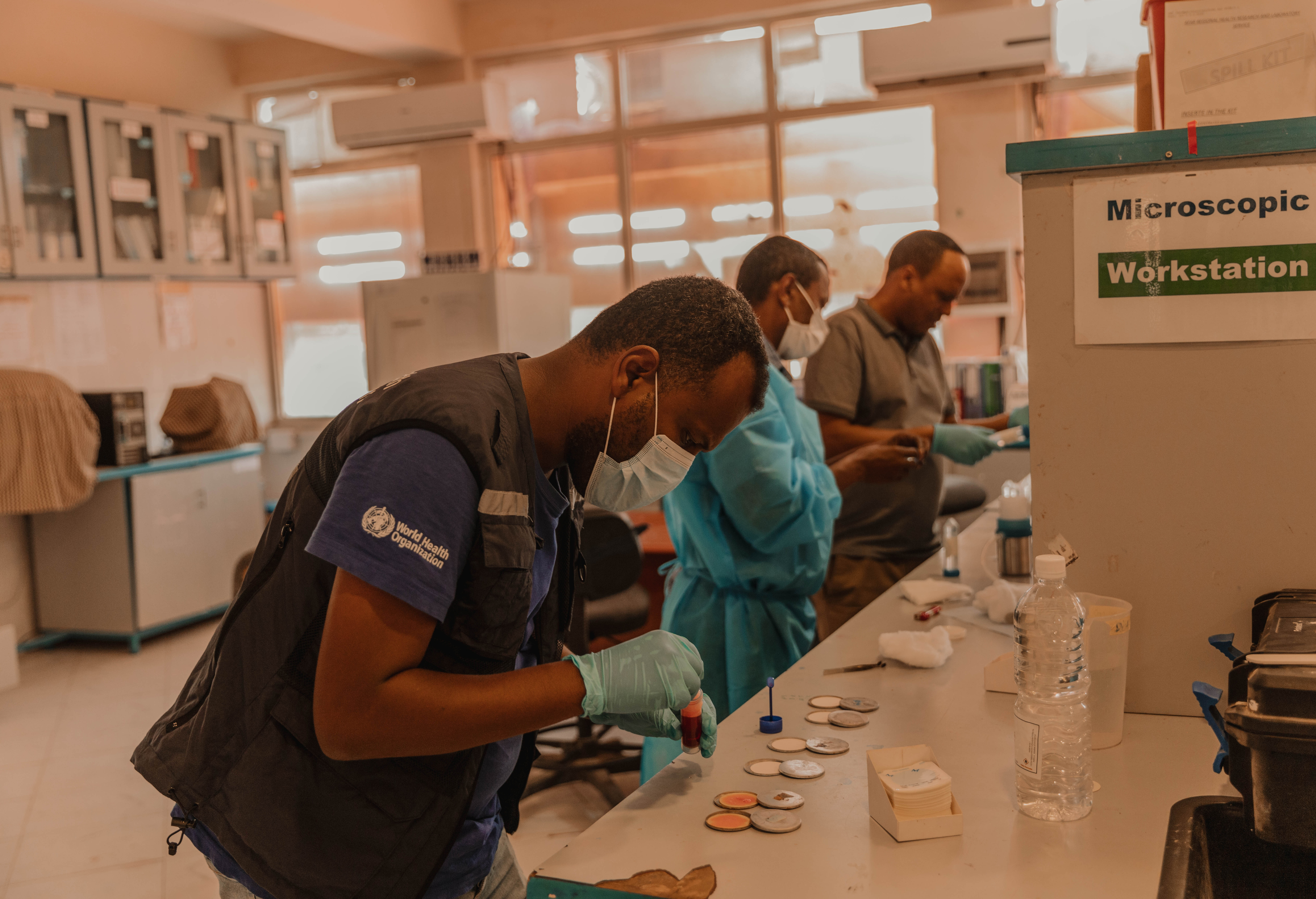
In these drought prone regions, sanitary surveys of drinking water supply are conducted using a structured checklist for 129 water sources, including household water storage and health facilities. Accordingly, about 67% (87) of water sources had a high potential risk of environmental contamination.
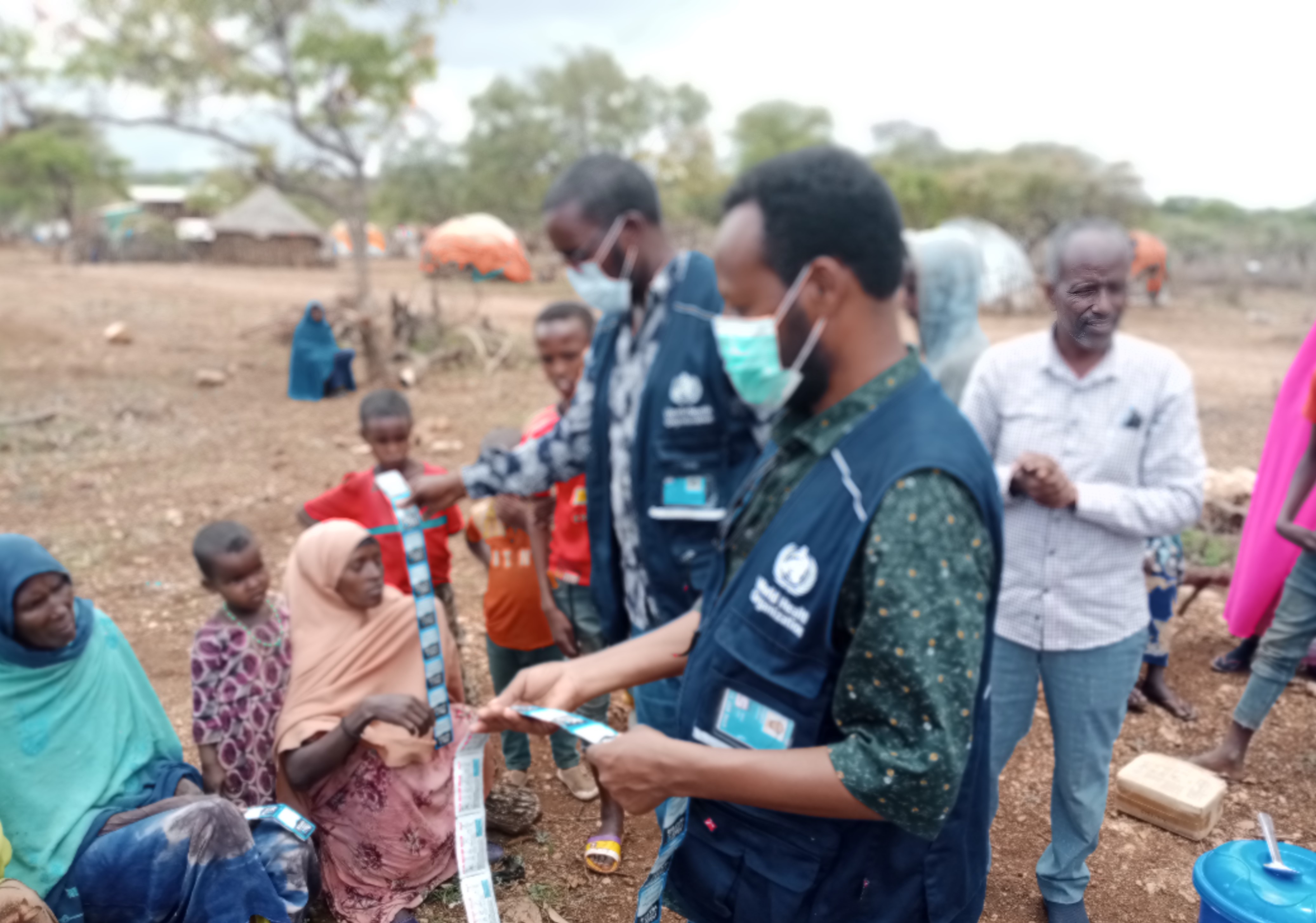
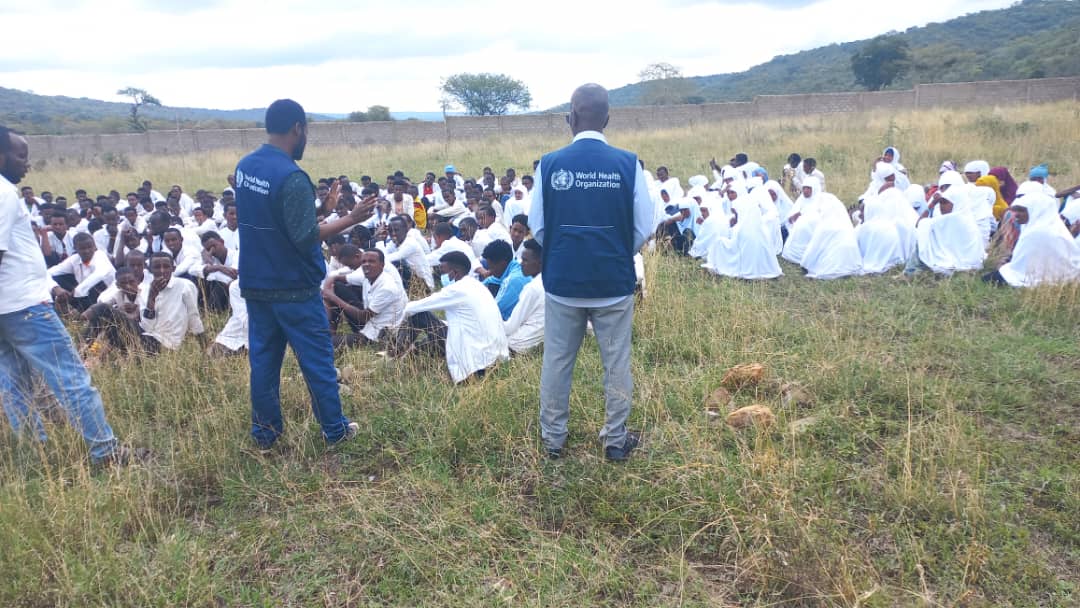
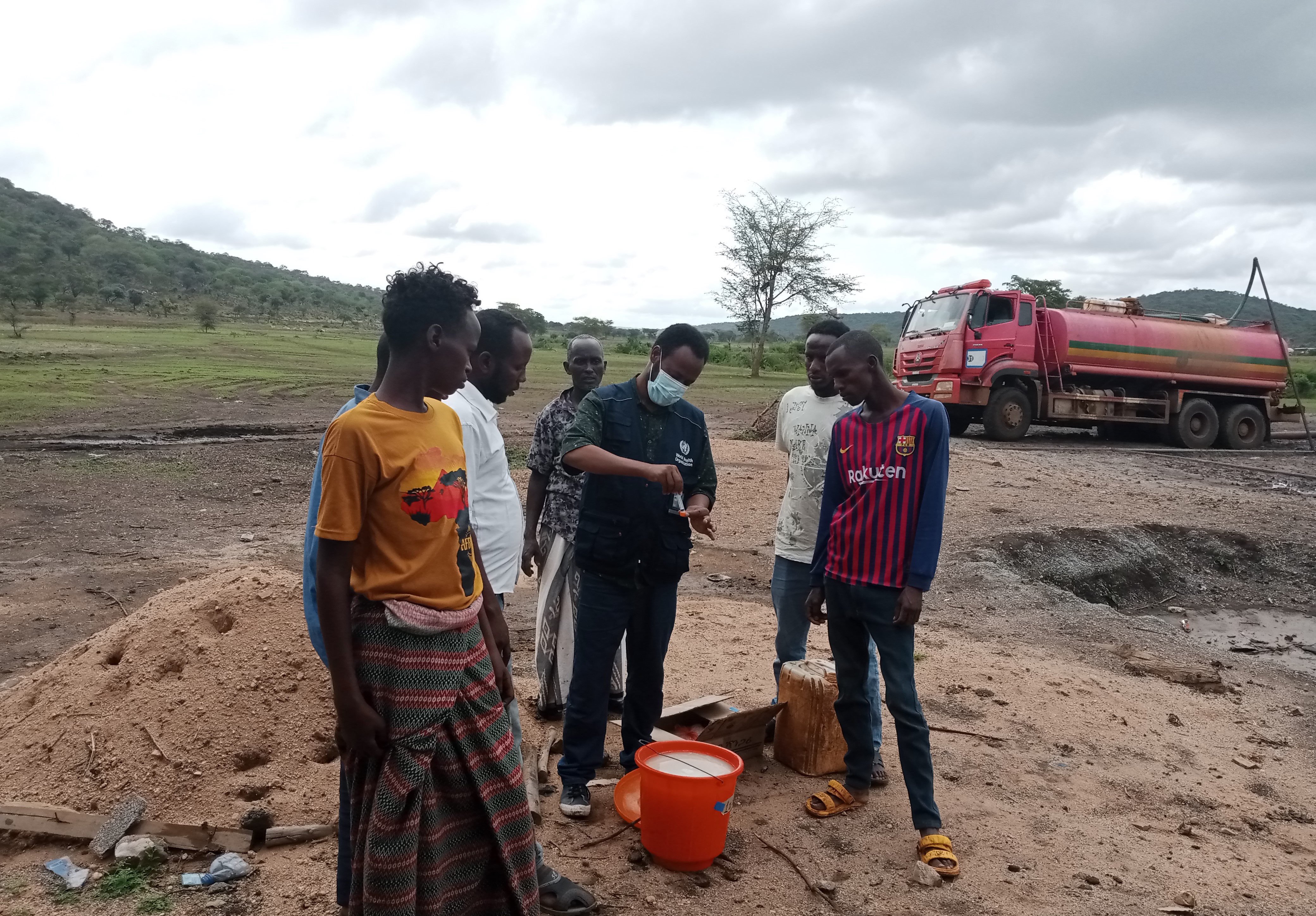
Using contaminated water from polluted sources is the most likely cause of cholera outbreaks. Limited access to water and sanitation (WaSH), poor sanitation practices, including open defecation, and lack of water treatment facilities appear to be among the key factors contributing to the rapid spread of the disease in those regions.
The overall aim of WHO in partnership with ECHO is to strengthen and establish a functional system for monitoring safe drinking water quality and hygiene promotion in high-risk priority Woredas/zones in the five drought-affected regions (Afar, Oromia, SNNP, Somali and Southwest).
Communications Officer
WHO Ethiopia
Email: gebremichaela [at] who.int (gebremichaela[at]who[dot]int)
Senior Communications Officer
WHO Ethiopia
Email: tesfayel [at] who.int (tesfayel[at]who[dot]int)
Tel: +251 911 144 194 (Direct, Whatsapp)



